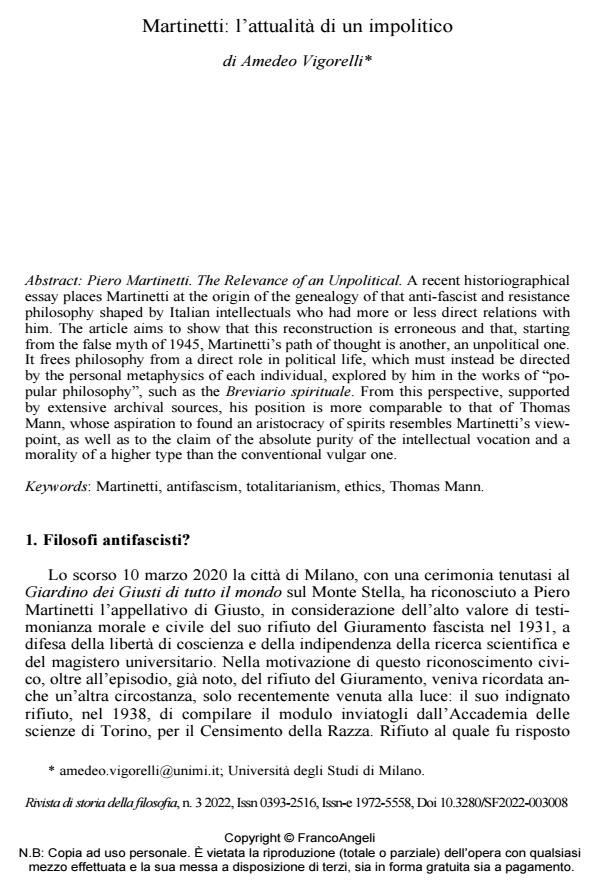Piero Martinetti. The Relevance of an Unpolitical
Journal title RIVISTA DI STORIA DELLA FILOSOFIA
Author/s Amedeo Vigorelli
Publishing Year 2022 Issue 2022/3
Language Italian Pages 11 P. 482-492 File size 131 KB
DOI 10.3280/SF2022-003008
DOI is like a bar code for intellectual property: to have more infomation
click here
Below, you can see the article first page
If you want to buy this article in PDF format, you can do it, following the instructions to buy download credits

FrancoAngeli is member of Publishers International Linking Association, Inc (PILA), a not-for-profit association which run the CrossRef service enabling links to and from online scholarly content.
A recent historiographical essay places Martinetti at the origin of the genealogy of that anti-fascist and resistance philosophy shaped by Italian intellectuals who had more or less direct relations with him. The article aims to show that this reconstruction is erroneous and that, starting from the false myth of 1945, Martinetti’s path of thought is another, an unpolitical one. It frees philosophy from a direct role in political life, which must instead be directed by the personal metaphysics of each individual, explored by him in the works of "popular philosophy", such as the Breviario spirituale. From this perspective, supported by extensive archival sources, his position is more comparable to that of Thomas Mann, whose aspiration to found an aristocracy of spirits resembles Martinetti’s viewpoint, as well as to the claim of the absolute purity of the intellectual vocation and a morality of a higher type than the conventional vulgar one.
Keywords: Martinetti, antifascism, totalitarianism, ethics, Thomas Mann.
Amedeo Vigorelli, Martinetti: l’attualità di un impolitico in "RIVISTA DI STORIA DELLA FILOSOFIA" 3/2022, pp 482-492, DOI: 10.3280/SF2022-003008